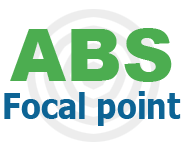Nationaal informatiepunt voor Toegang en Verdeling van Voordelen
Het ABS-Loket Nederland geeft informatie over Access and Benefit-Sharing (ABS, ‘toegang en verdeling van voordelen’), in het bijzonder het Nagoya Protocol en de EU ABS Verordening. Het biedt richtlijnen voor het verkrijgen van toegang tot genetische bronnen en daarmee verbonden traditionele kennis in Nederland en in het buitenland en achtergrondinformatie over internationale regels en Nederlands beleid.
Over Access and Benefit-Sharing (ABS)
Access and Benefit-Sharing (ABS, ‘toegang en verdeling van voordelen’) heeft betrekking op de internationale en nationale regels voor het verwerven en gebruiken van genetische bronnen en daarmee verbonden traditionele kennis, en het verdelen van de voordelen uit dit gebruik tussen leveranciers en gebruikers.
Tot enkele decennia geleden was het heel gewoon om levende organismen te verzamelen en naar andere landen mee te nemen, zonder verplichtingen of beperkingen voor het gebruik van het verzamelde materiaal. Naarmate het besef toenam dat genetische bronnen reële danwel potentiële waarde hebben, beriepen landen zich steeds vaker op hun rechten met betrekking tot hun genetische bronnen. In deze context werden de concepten van nationale soevereiniteit over genetische bronnen en ‘toegang en verdeling van voordelen’ (Access and Benefit-Sharing, ABS) stevig verankerd in het Verdrag inzake biologische diversiteit (CBD), dat in 1992 werd aangenomen. Als gevolg hiervan kunnen planten, dieren en micro-organismen (en daarmee verbonden traditionele kennis) niet langer zomaar worden verzameld en meegenomen: er moet nu vaak toestemming zijn van het land waarvan een gebruiker de genetische bron wil verkrijgen, en het is mogelijk dat de voordelen uit het gebruik van genetische bronnen moeten worden gedeeld.
Het Nagoya Protocol en de EU ABS Verordening
Het Nagoya Protocol is gericht op het verschaffen van een transparant wettelijk kader voor ABS en is op 12 oktober 2014 in werking getreden. In de Europese Unie wordt het Nagoya Protocol geïmplementeerd door middel van de EU ABS Verordening (Verordening (EU) 511/2014), die op dezelfde datum in werking is getreden. Op 27 augustus 2016 is een Leidraad gepubliceerd door de Europese Commissie over het toepassingsgebied en de kernverplichtingen van Verordening (EU) 511/2014. Op 12 januari 2021 is door de EC een herziene Leidraad gepubliceerd, met meer gedetailleerde informatie en praktische voorbeelden over het toepassingsgebied en de verplichtingen voor gebruikers van Verordening (EU) 511/2014.
Over toegang tot Nederlandse genetische bronnen
De toegang tot Nederlandse genetische bronnen wordt niet gereguleerd in het kader van het Nagoya Protocol, omdat de Nederlandse overheid het niet noodzakelijk vindt om haar soevereiniteit ten aanzien van de toegang tot in Nederland voorkomende genetische bronnen te verankeren in nationale wetgeving (sectie 6.2.1 van de memorie van toelichting bij de Wet implementatie Nagoya Protocol). Dit betekent dat er geen ABS-verplichtingen zijn voor toegang tot en gebruik van Nederlandse genetische bronnen.
Bovenstaande geldt uiteraard alleen als de genetische bronnen daadwerkelijk Nederlandse genetische bronnen zijn, d.w.z. dat het niet gaat om genetische bronnen die uit een ander land zijn verkregen en naar Nederland zijn overgebracht. Indien de genetische bronnen uit een ander land zijn verkregen, kan de toegangswetgeving van dat land van toepassing zijn.
Houd er daarnaast rekening mee dat, hoewel er voor Nederlandse genetische bronnen dus geen ABS-toegangsregels zijn, er mogelijk wel andere regelgeving van kracht kan zijn, bijvoorbeeld op het gebied van soortbescherming, beschermde gebieden en fytosanitaire maatregelen. Voor de verzameling en overdracht van genetische bronnen in particulier bezit is toestemming van de eigenaar vereist. Collectiehouders kunnen voorwaarden stellen (bijvoorbeeld in de vorm van een Overeenkomst inzake overdracht van materiaal, Material Transfer Agreement), die vaak afhankelijk zijn van de voorwaarden waaronder de collecties het materiaal zelf hebben verkregen.
Over de website van het ABS-Loket Nederland
Het ABS-Loket Nederland is het National Focal Point (NFP) van Nederland. De website van het ABS-Loket biedt niet alleen informatie over ABS, in het bijzonder het Nagoya Protocol en de EU ABS Verordening, maar gaat ook in op de praktische implicaties van ABS voor gebruikers van genetische bronnen. Op de website vindt u Veelgestelde Vragen, een interactieve ABS-hulptool, informatie over het Nederlandse ABS-beleid, ABS-nieuwsbrieven en meer. Neem voor vragen over het Nagoya Protocol, de EU ABS Verordening of andere aspecten van ABS gerust contact met ons op.
Voor verdere vragen over ABS kunt u mailen naar NagoyaNL@wur.nl.
Meer ABS
ABS documenten
Disclaimer: Het ABS-loket Nederland aanvaardt geen enkele aansprakelijkheid voor de inhoud van deze website. De informatie op deze website kan daarom niet gebruikt worden als basis voor claims.










